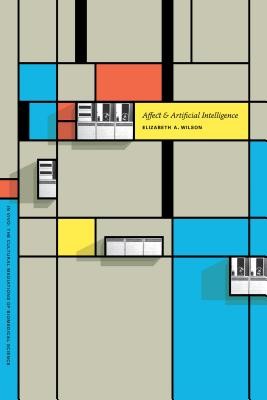
- We will send in 10–14 business days.
- Author: Elizabeth A Wilson
- Publisher: University of Washington Press
- ISBN-10: 0295990511
- ISBN-13: 9780295990514
- Format: 18 x 23.1 x 1.8 cm, kieti viršeliai
- Language: English
- SAVE -10% with code: EXTRA
Reviews
Description
In 1950, Alan Turing, the British mathematician, cryptographer, and computer pioneer, looked to the future: now that the conceptual and technical parameters for electronic brains had been established, what kind of intelligence could be built? Should machine intelligence mimic the abstract thinking of a chess player or should it be more like the developing mind of a child? Should an intelligent agent only think, or should it also learn, feel, and grow?
Affect and Artificial Intelligence is the first in-depth analysis of affect and intersubjectivity in the computational sciences. Elizabeth Wilson makes use of archival and unpublished material from the early years of AI (1945-70) until the present to show that early researchers were more engaged with questions of emotion than many commentators have assumed. She documents how affectivity was managed in the canonical works of Walter Pitts in the 1940s and Turing in the 1950s, in projects from the 1960s that injected artificial agents into psychotherapeutic encounters, in chess-playing machines from the 1940s to the present, and in the Kismet (sociable robotics) project at MIT in the 1990s.
EXTRA 10 % discount with code: EXTRA
The promotion ends in 22d.00:51:40
The discount code is valid when purchasing from 10 €. Discounts do not stack.
- Author: Elizabeth A Wilson
- Publisher: University of Washington Press
- ISBN-10: 0295990511
- ISBN-13: 9780295990514
- Format: 18 x 23.1 x 1.8 cm, kieti viršeliai
- Language: English English
In 1950, Alan Turing, the British mathematician, cryptographer, and computer pioneer, looked to the future: now that the conceptual and technical parameters for electronic brains had been established, what kind of intelligence could be built? Should machine intelligence mimic the abstract thinking of a chess player or should it be more like the developing mind of a child? Should an intelligent agent only think, or should it also learn, feel, and grow?
Affect and Artificial Intelligence is the first in-depth analysis of affect and intersubjectivity in the computational sciences. Elizabeth Wilson makes use of archival and unpublished material from the early years of AI (1945-70) until the present to show that early researchers were more engaged with questions of emotion than many commentators have assumed. She documents how affectivity was managed in the canonical works of Walter Pitts in the 1940s and Turing in the 1950s, in projects from the 1960s that injected artificial agents into psychotherapeutic encounters, in chess-playing machines from the 1940s to the present, and in the Kismet (sociable robotics) project at MIT in the 1990s.


Reviews